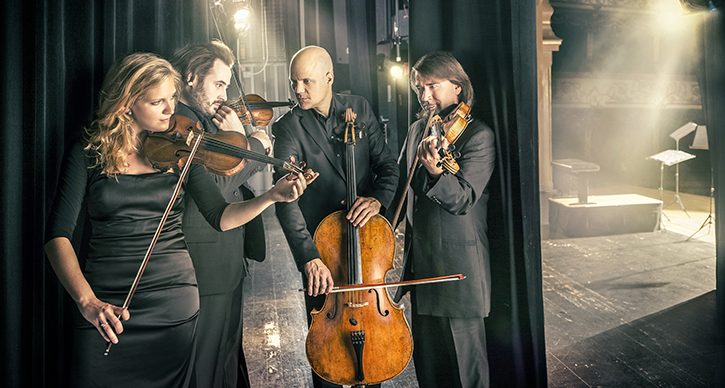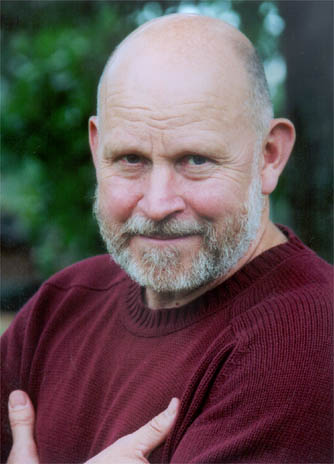Perspectives on Melody in Dvorak, Tchaikovsky, and Vasks
Artemis Quartet perform in Ann Arbor on April 19, 2015. Photo by Molina Visuals.
The Artemis Quartet’s program features two stalwarts of their usual repertoire alongside a recent work by one of Europe’s leading contemporary string composers, Peteris Vasks. Born, educated, and based in Latvia, Vasks began his musical life as a bassist before transitioning to composition in the 1970s. His experiences as a string player are likely responsible for the plentitude of pieces for string ensembles among his output. More importantly, his familiarity with the sound of string instruments equips him well to write highly evocative, highly expressive string music.
A strong melodic focus
While it may seem that Vasks, Dvořák, Tchaikovsky have little in common beyond the fact they are all European composers, this is not wholly the case. All three create music with a strong melodic focus that gravitates toward a clear lyrical style. Of course, Vasks enjoys and employs more freedom than Dvořák or Tchaikovsky, whose aesthetic choices were effectively dictated by a syntax of musical ideas shared among essentially all contemporaneous European composers. Indeed, melody is a de rigeur element of nineteenth century music, and Tchaikovsky is regarded as one of the best melodists in history. The Quartet No. 1 in D major (1871), part of the Artemis Quartet’s April 2015 program, certainly lives up to his reputation, although its tunes may not be as famous as those featured in Tchaikovsky’s ballets.
More interesting are the melodic experiments present in Dvořák’s Quartet in F Major, “American” (1893), which contains the pentatonic scale in abundance. The presence of this five-note scale, which also appears prominently in Dvořák’s Symphony No. 9, “From The New World” (1895), may have garnered the quartet’s nickname, as the pentatonic melodies suggest non-white American folk music. Dvořák wrote fondly of African-American music, which he heard while living in the United States, and it’s reasonable that he may have tried to refer to this tradition in the pieces he composed during this period.
Thinking beyond the movement
Although Vasks values melody in a very traditional sense, he treats it more dynamically than Dvořák or Tchaikovsky. As you will hear, Vasks thinks beyond the movement of one note to another; he develops color, register, and texture as well. Vasks’ string orchestra work Musica Dolorosa (1983) demonstrates this quality very clearly, moving from a mournful, romantic melody to an intense, aleatoric swarm of dissonance. Although there is no existing recording of Vasks’ String Quartet No. 5 (2008), his other quartets possess these same characteristics, despite the more limited instrumentation. Thus, it seems fair to expect the same in his more recent work.
In program notes written for his publisher, Vasks describes elements of his dramatic String Quartet No. 5 as, “atmospheric”, “a cry of utter desperation”, and, “a forgiving, loving look at a world tortured by grief and contradictions.” Structurally speaking, this quartet marks a departure for Vasks. String Quartet No. 5 has only two movements – being present and so far…yet so near – while the previous four all have at least three, with his String Quartet No. 4 (199) sporting five wildly contrasting movements. It will be interesting to see whether the seemingly condensed form of the String Quartet No. 5 manifests a unified and cohesive piece, or if the two titled movements simply represent two adjacent, yet individual, regions of diverse, free, and expressive musical ideas.
Interested in more? Explore our listening guide to the evolution of the string quartet.




